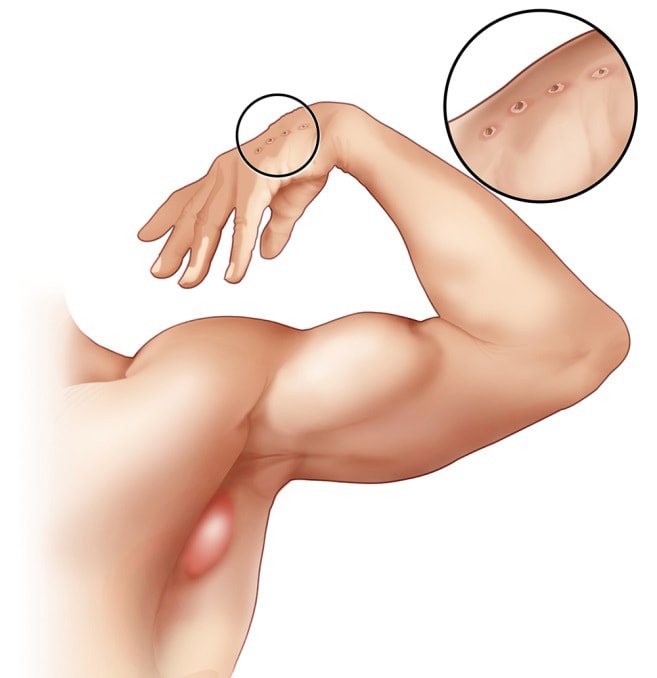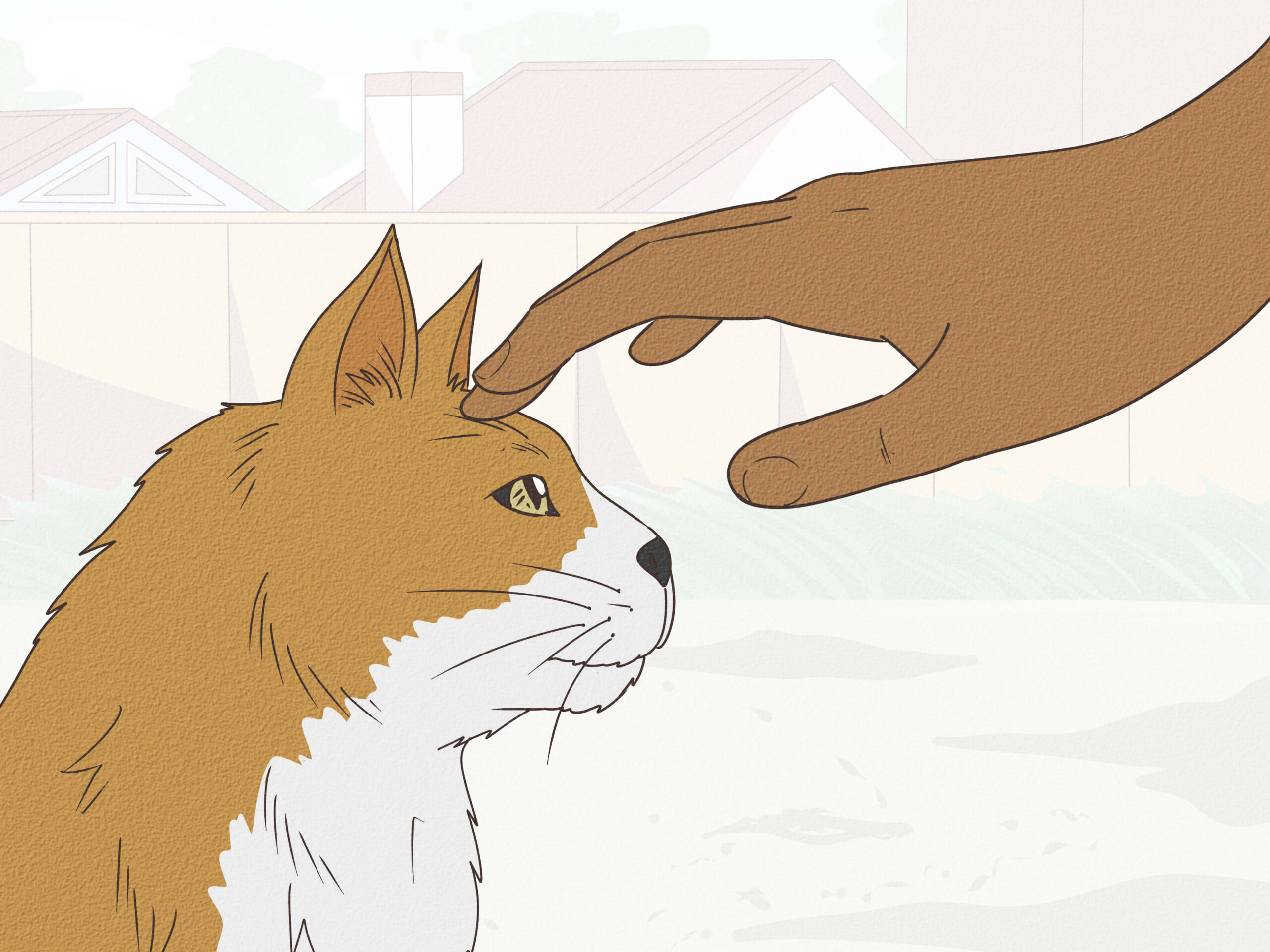If a feral cat scratches you, it can cause an infection or transmit diseases. Feral cat scratches may lead to infections or the transmission of diseases due to bacteria present in their claws and saliva.
These infections can include the cat-scratch disease, which is caused by a bacterium called Bartonella henselae, and can result in symptoms like fever, swollen lymph nodes, and fatigue. It is essential to seek medical attention if you are scratched by a feral cat to prevent complications and ensure proper treatment.
We will explore what happens if a feral cat scratches you and provide guidance on the necessary steps to take to keep yourself safe.
The Dangers Of Feral Cat Scratches
Interacting with feral cats can be a risky endeavor, especially when it comes to scratches. While a scratch from a domesticated cat may not pose significant health concerns, feral cat scratches can lead to various complications. It is crucial to understand the dangers associated with feral cat scratches to ensure prompt and appropriate medical care. In this article, we will discuss two significant risks – Rabies Risk and Bacterial Infections – associated with feral cat scratches.
Rabies Risk
Feral cats are more likely to carry rabies compared to their domesticated counterparts. Rabies is a viral infection that affects the central nervous system and can be transmitted through saliva, including scratches. Rabies is a serious and potentially fatal disease if left untreated. Common symptoms of rabies in humans include fever, headache, anxiety, confusion, and eventually, paralysis or delirium.
Bacterial Infections
Aside from the risk of rabies, feral cat scratches can also lead to bacterial infections. Cats have sharp claws that can easily penetrate the skin, introducing bacteria beneath the surface. This can result in infections such as cellulitis, a skin infection characterized by redness, swelling, and pain. Other bacterial infections that may occur from feral cat scratches include Pasteurella multocida and Cat Scratch Disease (CSD).
Cellulitis
Cellulitis can occur when bacteria, such as Staphylococcus or Streptococcus, enters through a scratch and causes an infection in the skin. If left untreated, cellulitis can spread to other parts of the body and potentially enter the bloodstream, leading to severe complications.
Pasteurella multocida
Pasteurella multocida is a bacteria commonly found in the mouths of cats. When a feral cat scratches you, this bacterium can easily enter the wound and cause an infection. Symptoms of Pasteurella multocida infection can include redness, swelling, pain, and pus around the scratch site. In severe cases, the infection can spread to other organs and cause more severe complications.
Cat Scratch Disease (CSD)
Cat Scratch Disease, caused by the bacteria Bartonella henselae, is another potential complication of feral cat scratches. This bacterial infection typically leads to swollen lymph nodes near the scratch site. Additional symptoms may include fever, fatigue, headache, and loss of appetite. While Cat Scratch Disease is usually self-limiting and resolves on its own, severe cases may require medical intervention.

Credit: www.medicalnewstoday.com
Immediate First Aid For Feral Cat Scratches
If you’ve experienced a scratch from a feral cat, it’s important to act swiftly to prevent any potential complications. Immediate first aid for feral cat scratches involves two essential steps: cleaning the wound and seeking medical attention.
Cleaning The Wound
When it comes to cleaning a feral cat scratch, thoroughness is key. Follow these steps:
- Gently wash your hands with soap and warm water.
- Apply gentle pressure around the scratch to encourage bleeding. This helps flush out any potential bacteria.
- Rinse the wound under cool running water for several minutes to remove dirt and debris.
- Use mild soap and water to cleanse the surrounding area of the scratch.
- Pat the wound and surrounding area dry with a clean towel or sterile gauze.
- Cover the scratch with an adhesive bandage or sterile gauze pad to protect it from further contamination.
Seeking Medical Attention
After cleaning the wound, it’s recommended to seek medical attention to assess the severity of the scratch and receive appropriate care. Here’s what you should do:
- If the scratch is deep, long, or shows signs of infection (such as redness, swelling, or pus), do not hesitate to visit a healthcare professional.
- Inform the medical staff that the scratch came from a feral cat to ensure they take necessary precautions.
- Follow any additional instructions or medication prescribed by the healthcare provider to prevent infection and facilitate healing.
Remember, even if a feral cat scratch may seem minor, it’s better to be safe than sorry. By promptly cleaning the wound and seeking medical attention, you can minimize the risks and ensure proper care for your well-being.
Potential Complications From Untreated Scratches
When feral cats scratch, it can lead to potential complications if left untreated. It’s important to understand the possible risks associated with untreated scratches from feral cats, so you can take the necessary precautions to seek medical attention. Here are some potential complications from untreated scratches that you should be aware of:
Cellulitis And Abscesses
A scratch from a feral cat can introduce bacteria under the skin, leading to cellulitis. The affected area may become red, swollen, and tender. Abscesses can also form, which are pockets of pus caused by the body’s immune response to the bacteria. These conditions may require medical treatment, including antibiotics and drainage, to prevent further complications.
Tetanus Infection
If the feral cat’s claws or teeth puncture the skin, there is a risk of tetanus infection. Tetanus is a potentially serious bacterial infection that affects the nervous system, leading to muscle stiffness and spasms. It’s crucial to ensure your tetanus vaccination is up to date and seek medical attention if you are concerned about potential exposure to tetanus.

Credit: www.healthline.com
Preventive Measures For Future Encounters
Preventing feral cat scratches is crucial for your safety. By taking certain preventative measures and using the appropriate protective gear, you can minimize the risk of scratch injuries in the future.
Avoiding Feral Cats
- Avoid direct contact with feral cats to reduce the chances of getting scratched.
- Do not attempt to touch or pet feral cats, as they may perceive it as a threat.
- Keep your distance and give feral cats space to minimize potential confrontations.
Using Protective Gear
- Wear thick gloves when handling potentially aggressive feral cats.
- Consider wearing long sleeves and pants to protect your skin from scratch injuries.
- Use protective eyewear if working in close proximity to feral cats to prevent eye scratches.
By implementing these preventive strategies, you can safeguard yourself from potential scratch injuries when encountering feral cats.
Myth Busting: Common Misconceptions
Common misconceptions surrounding feral cat scratches can often lead to unnecessary fear and misinformation. Let’s delve into some myths that deserve to be debunked.
Cat Scratch Fever Myth
Contrary to common belief, not every feral cat scratch leads to cat scratch fever.
Natural Immunity Beliefs
There is no natural immunity to the potential risks associated with feral cat scratches.

Credit: www.cdc.gov
Frequently Asked Questions For What Happens If A Feral Cat Scratches You?
What Are The Risks Of Getting Scratched By A Feral Cat?
Scratches from feral cats can lead to bacterial infections or cat scratch fever. Prompt medical care is recommended to prevent complications.
How Should I Treat A Scratch From A Feral Cat?
Clean the scratch with soap and water, apply an antibiotic ointment, and cover it with a bandage. Monitor for signs of infection.
Do All Feral Cats Carry Diseases That Can Be Transmitted Through Scratches?
Not all feral cats carry diseases, but it’s essential to treat all scratches seriously and seek medical advice if needed.
Can Scratches From Feral Cats Cause Allergic Reactions?
Scratches from feral cats can trigger allergic reactions in some individuals. If you experience unusual symptoms, consult a healthcare provider.
Conclusion
It’s important to be cautious around feral cats due to potential scratches. Remember to clean the wound promptly and seek medical attention if necessary. By understanding the risks, you can protect yourself and ensure a safer interaction with these animals.
Stay informed and stay safe around feral cats.



